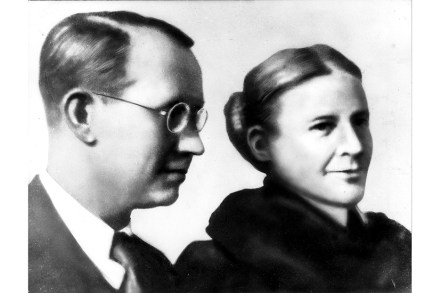Why did the Allies dismiss the idea of a German resistance movement?
In 1928, a modest young lecturer from Wilwaukee, Mildred Harnack, née Fish, arrived in Berlin to begin her PhD in American Literature. In the febrile, polyglot atmosphere in the city at the ‘crossroads of Europe’, the media was still mocking Adolf Hitler and few took him seriously. Mildred saw, close up, the brokenness of American and German capitalism and, distantly, the apparently level playing fields of communist Russia. As the Nazis gained increasing control over the body politic, she taught an overtly socialist syllabus — Dos Passos, Theodore Dreiseret al. When, halfway through her dissertation, the university fired her, she promptly started teaching at a night school for working-class students.




















